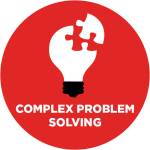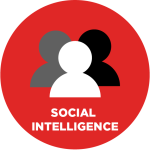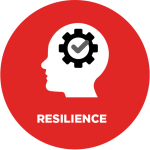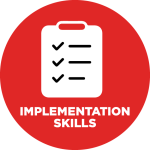1.7 The Unwritten Rules
The Hidden Curriculum
The hidden curriculum is a phrase used to cover a wide variety of circumstances at school that can influence learning and affect your experience. Sometimes called the invisible curriculum, it varies by institution and can be thought of as a set of unwritten rules or expectations.
The expectations before, during, and after class, as well as what you should do if you miss class, are often unspoken because many professors assume you already know and do these things or because they feel you should figure them out on your own. Nonetheless, some students struggle at first because they don’t know about these habits, behaviours, and strategies. But once they learn them, they are able to meet them with ease.
Becoming familiar with these expectations will help you develop your complex problem solving and social intelligence skills.
Situation: According to your schedule, your professor is lecturing on the chapter that covers S.M.A.R.T goals on Tuesday of next week.
Sounds pretty straightforward and common. Your professor lectures on a topic and you will be there to hear it. However, there are some unwritten rules, or hidden curriculum, that are not likely to be communicated. Can you guess what they may be?
- What is an unwritten rule about what you should be doing before attending class?
- What is an unwritten rule about arriving late to class?
- What is the unwritten rule about what you should be doing in class?
- What is an unwritten rule about what you should be doing after class?
- What is an unwritten rule if you are not able to attend that class?
Some of your answers could have included the following:
Before Class
Arriving to Class
During Class
After Class
Absent
Other examples:
Information may not be presented to you in a way that you understand easily or may challenge your current ways of thinking. It may be the professor or the content itself but you find it challenging to stay engaged in learning.
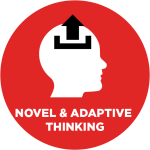
Imagine three different classes on the exact same subject and taught by the same instructor. One class is held in a large lecture hall and has over 50 students in it, one meets in a small classroom and has fewer than 20 students and the third is an online class where the students don’t meet with the professor at the same time. Each group will have different experiences when it comes to being able sharing information and ideas due to the size and timing. Each learning environment will require students to use novel and adaptive thinking to adjust to the learning environment to be successful.
Another instance where class circumstances might heavily influence student learning could be found in the class schedule. You may have classes that start at 8 AM and run most of the day or you may have evening classes or only a single one hour class in the middle of the day. Personal circumstances may arise that you were not expecting and your carefully planned schedule no longer works. Your anatomy class is scheduled to meet on Mondays and the due date for assignments are Fridays so you may benefit from having all week to finalize their work before handing it in. But if another student has the same class, and it meets on Fridays, those students might not have as much free time just before handing in the assignment. Your ability to adapt will become important to ensure you plan ahead and keep organized.
Working Within the Hidden Curriculum
The first step in dealing with the hidden curriculum is to recognize it and understand how it can influence your learning. After any specific situation has been identified, the next step is to figure out how to work around the circumstances to either take advantage of any benefits or to remove any roadblocks.
To illustrate this, here are some possible solutions to the situations given as examples earlier in this section:
Professors and Content: Simply put, you are going to encounter instructors and learning activities that you find easier to understand than others. The key is to learn from them regardless. In either case, take ownership of your learning and even make an effort to learn about other perspectives, even if it is only for your own education on the matter. There is no better time to expose yourself to other opinions and philosophies than in college. In fact, many would say that this is a significant part of the college experience. With a growth mindset, it is easy to view possible problems as a learning opportunity.
Classroom/Scheduling Circumstances: These kinds of circumstances often require a more structured approach to turn the situation to your advantage, but they also usually have the most obvious solutions. In the example of the large class, you might find yourself limited in the ability to participate in classroom discussions because of so many other students.
One option would be to speak to several classmates and create your own discussion group. You could set up a time to meet, or you could take a different route by using technology such as an online discussion board, a WhatsApp group, or even a group text. Several of the technologically based solutions might even be better than an in-class discussion since you do not all have to be present at the same time. The discussion can be something that occurs all week long, giving everyone the time to think through their ideas and responses.
Again, the main point is to first spot those things in the hidden curriculum that might put your learning at a disadvantage and devise a solution that either reduces the negative impact or even becomes a learning advantage.
Your academic advisor is a great person to connect with in helping to find solutions to some of these challenges.
“1.6 The Unwritten Rules” from Fanshawe SOAR by Kristen Cavanagh is licensed under a Creative Commons Attribution-NonCommercial-ShareAlike 4.0 International License, except where otherwise noted.

